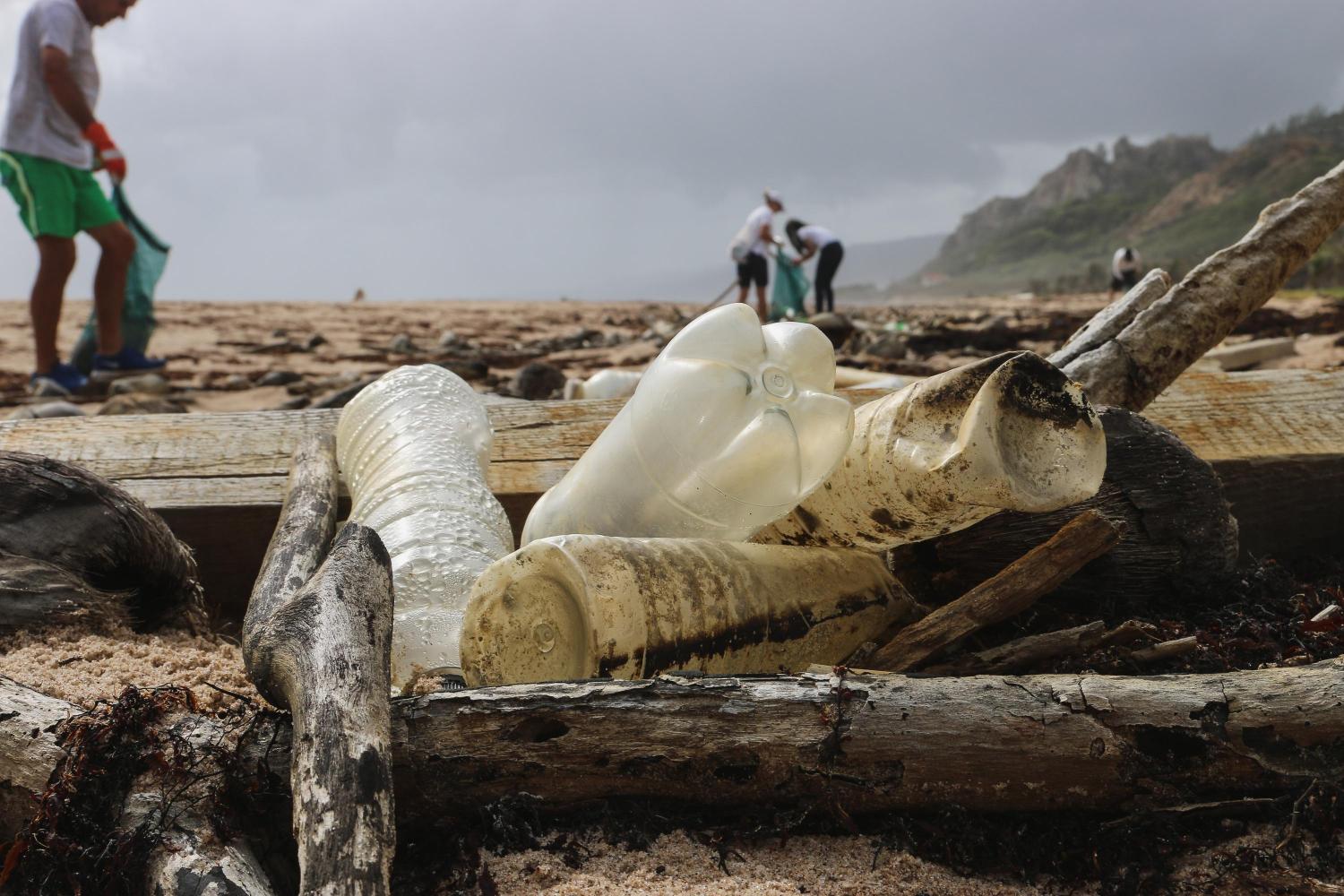
The fight against ocean plastic pollution is heating up, with companies, cities, states, and new public-private partnerships all vowing to take action to reduce the amount of plastic waste that ends up in the natural environment and, ultimately, our oceans. But there’s one entity that has failed to act: The United States federal government. That, alongside the growing awareness that we need rapid action, is why environmentalists are increasingly pushing for national legislation.
"The U.S. has often been an international leader on environmental issues, but unfortunately it’s falling behind other countries on addressing the plastics crisis,” Christy Leavitt, campaign director for the NGO Oceana, said in a press statement.
Leavitt recently gave testimony on this topic to Congress, the branch of the U.S. government that many hope can lead on federal action. Right now, such a sense of urgency is missing. Cities have certainly acted: For example, San Francisco’s plastic bag ban eliminated 5 million bags per month, and shops at the city’s international airport no longer offer plastic water bottles; several states have passed similar measures as well.
“U.S. cities, towns, counties and states are not waiting for federal action and are instead leading the way in regulating single-use plastics,” Leavitt said. “The federal government should learn from these actions and implement national policies to stem the flow of plastic into our oceans."
Plastic pollution has, in the past few years, become a major global concern. The stakes are high, as a study released in 2016 by the nonprofit Ocean Conservancy shows our stark future. If we don’t make drastic changes soon, by 2050 our oceans could have more plastic in them than fish. There’s evidence now that even rainfall contains plastic, which is also now found in the most remote places on the planet.
“Despite the ocean’s importance to life on Earth and the livelihoods of billions of people around the world, humanity has altered or destroyed marine ecosystems and driven marine species to the brink of extinction,” Leavitt said. “And now, as one scientist put it, the oceans are literally spitting plastic back at us with every wave.”
Thus far, there has been some meaningful corporate action on this front, with broad partnerships being formed. These include the Ellen MacArthur Foundation’s New Plastics Economy Global Commitment, which includes dozens of companies representing 20 percent of all global plastic packaging production; the Alliance to End Plastic Waste; and NextWave Plastics, whose member companies are developing a supply chain for ocean-bound plastics. Large brands are taking their own ambitious steps, like PepsiCo’s recently announced target to reduce its use of virgin plastic by 35 percent by 2025.
But from the perspective of many NGOs, more needs to be done.
“Corporations responsible for the throwaway packaging must redesign their production and start investing in alternative packaging materials and delivery systems that are ecologically sustainable for the people and the planet,” Beau Baconguis, regional plastics campaigner for the advocacy group GAIA Asia Pacific, said in a press statement.
Even taken together, these efforts are not yet nearly enough. There are thousands of companies of all sizes that utilize single-use plastic, including many that are not consumer-facing and thus have less pressure to change their practices. That is why there is a need for governments to set standards and limit the use of single-use plastic, so that bad actors do not negate the positive impacts of ethical and sustainable brands.
This becomes even more important when taking into consideration the fact that the plastic industry has been fighting against bans, or any meaningful action, even as it professes to want to solve the problem.
For example, an investigation published in The Intercept in July uncovered how the American Progressive Bag Alliance—a lobbying group of the Plastics Industry Association, which includes Shell, Exxon Mobil, Chevron Phillips, DowDuPont and Novolex as members—has backed bills that restrict plastic bans or regulations in states like Tennessee. We need strong national legislation to preempt the plastic industry from spreading their dangerous rhetoric across the country—and putting the natural environment at danger.
There are many ways this could be done. Indonesia, the world’s second largest source of oceanic plastic pollution, is considering a plastic tax alongside an expansion in incineration, which carries its own concerns. The European Parliament recently approved a wide-ranging ban on single-use plastics.
We know ocean plastic is causing a global crisis. Now it's time to find solutions. While partnerships and moves like PepsiCo’s are welcome, if companies really want to show their commitment to reducing plastic waste, they should push for strong legislation in Congress that is similar to what is unfolding in the European Union and Indonesia. Only then can we begin to solve this huge, global problem.
Image credit: Brian Yurasits/Unsplash

Nithin Coca is a freelance journalist who focuses on environmental, social, and economic issues around the world, with specific expertise in Southeast Asia.














